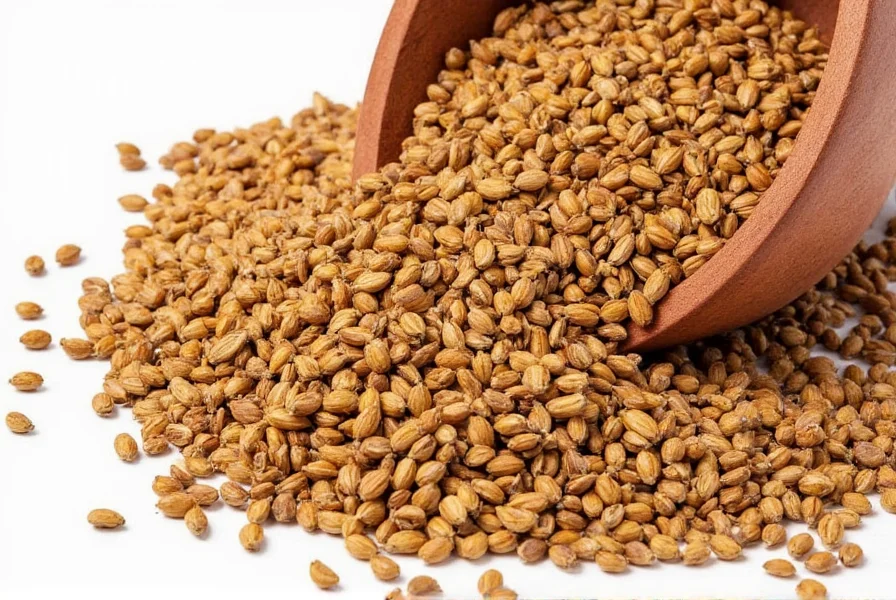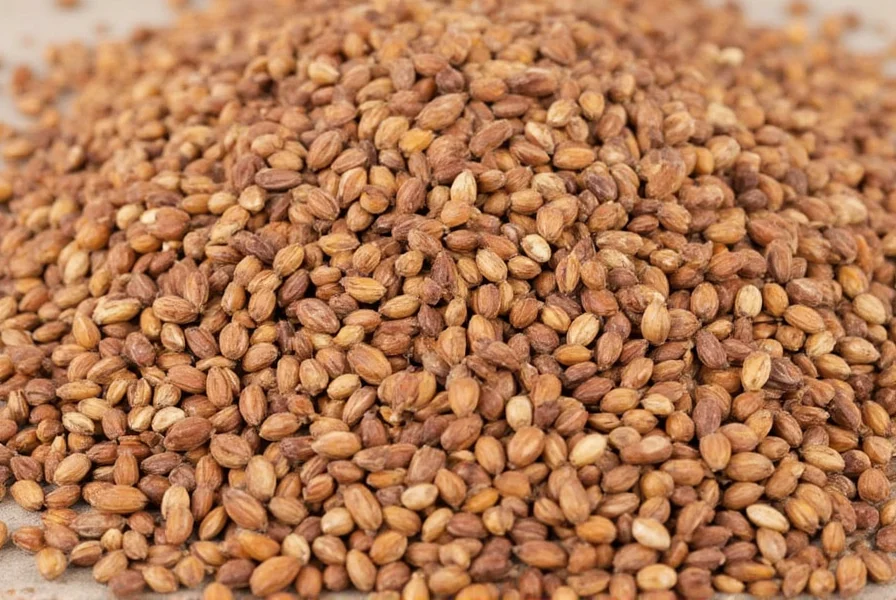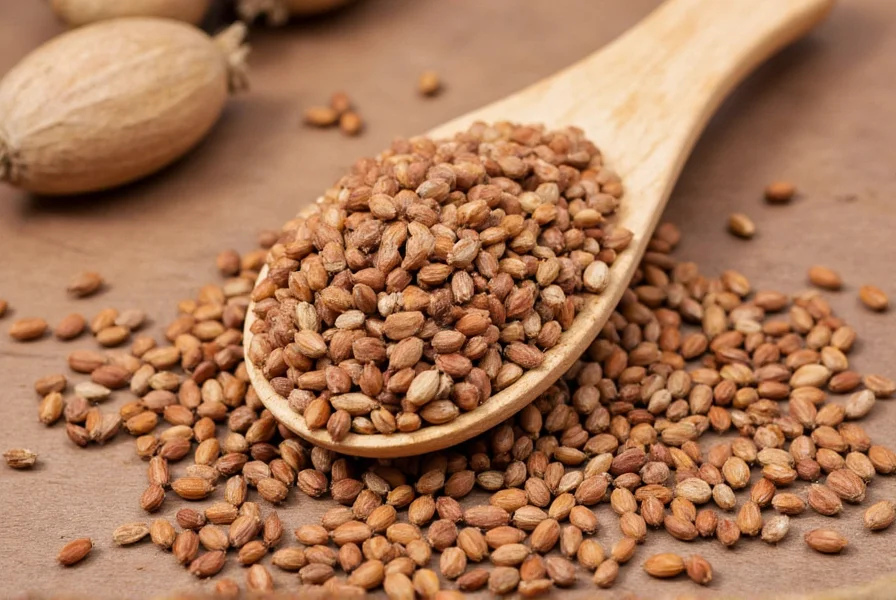For centuries, cumin seeds have been valued not just for their distinctive flavor but for their remarkable health-promoting properties. Modern scientific research continues to validate many traditional uses of this ancient spice, revealing specific mechanisms through which cumin supports human health. Unlike many trending superfoods with exaggerated claims, cumin's benefits are supported by numerous clinical studies examining its effects on digestion, metabolism, and inflammation.
The Science Behind Cumin's Health Properties
Cumin (Cuminum cyminum) belongs to the Apiaceae family and contains several bioactive compounds responsible for its therapeutic effects. The most significant include cuminaldehyde (providing its characteristic aroma), thymoquinone, flavonoids, and phenolic acids. These compounds work synergistically to deliver cumin seeds benefits for health through multiple physiological pathways.
Nutritionally, one tablespoon (6g) of ground cumin provides:
| Nutrient | Amount per Tbsp | % Daily Value |
|---|---|---|
| Calories | 23 | 1% |
| Iron | 1.4mg | 8% |
| Manganese | 0.3mg | 13% |
| Magnesium | 26mg | 6% |
| Dietary Fiber | 1.4g | 5% |
Evidence-Based Health Benefits of Cumin Seeds
Digestive Health Enhancement
One of the most well-documented cumin seeds benefits for health is improved digestion. Multiple studies demonstrate that cumin stimulates the production of digestive enzymes from the pancreas, enhancing the breakdown of carbohydrates, fats, and proteins. A 2018 clinical trial published in Complementary Therapies in Medicine found that participants taking cumin extract experienced significantly reduced symptoms of indigestion compared to placebo.
Research on how cumin seeds improve digestion reveals they increase bile production, which helps emulsify fats and improve nutrient absorption. This makes cumin particularly valuable when consumed with fatty meals. Traditional Ayurvedic medicine has long recommended cumin for digestive complaints, and modern science continues to validate these applications.
Blood Sugar Regulation
Emerging evidence supports cumin seeds for blood sugar control, making it potentially valuable for prediabetic individuals. A randomized controlled trial in the Journal of Ethnopharmacology showed that daily consumption of 75mg of cumin extract over eight weeks significantly reduced fasting blood glucose and HbA1c levels in prediabetic adults.
The mechanism appears related to cumin's ability to enhance insulin sensitivity and protect pancreatic beta cells. While not a replacement for diabetes medication, incorporating cumin into a balanced diet represents a promising complementary approach for managing blood sugar naturally with spices.

Potent Antioxidant Effects
The antioxidant properties of cumin seeds rank among the highest of common culinary spices. Research measuring ORAC (Oxygen Radical Absorbance Capacity) values places cumin significantly higher than many other spices. These antioxidants combat oxidative stress by neutralizing free radicals and boosting the body's own antioxidant enzyme systems.
A 2020 review in Antioxidants highlighted that cumin's antioxidant compounds reduce markers of oxidative damage in multiple organ systems. This contributes to cumin's potential protective effects against chronic diseases where oxidative stress plays a key role, including cardiovascular conditions and certain neurodegenerative disorders.
Anti-Inflammatory Properties
Chronic inflammation underlies many modern health conditions, and cumin demonstrates significant anti-inflammatory activity. Studies show that cumin extracts inhibit key inflammatory pathways, including NF-kB and COX-2 enzymes. This makes cumin a valuable dietary component for those managing inflammatory conditions.
Research examining cumin seeds benefits for inflammation indicates regular consumption may help reduce inflammatory markers like C-reactive protein (CRP) and interleukin-6. While not as potent as pharmaceutical anti-inflammatories, cumin offers a gentle, food-based approach to managing low-grade chronic inflammation.
Practical Usage Guidelines
To maximize the cumin seeds nutrition benefits, consider these evidence-based recommendations:
- Daily intake: Aim for 300-600mg of standardized cumin extract or 1-2 teaspoons of ground cumin in cooking
- Optimal preparation: Dry-roasting cumin seeds before grinding enhances bioactive compound availability
- Combination effects: Pairing cumin with black pepper increases absorption of its beneficial compounds
- Timing: Consuming cumin with meals maximizes digestive benefits and nutrient absorption
For those exploring how to use cumin seeds for maximum health benefits, try adding freshly ground cumin to roasted vegetables, soups, or homemade salad dressings. The spice works particularly well with lentils, beans, and whole grains—combinations that create nutritionally synergistic meals.
Safety Considerations and Potential Side Effects
Cumin is generally recognized as safe when consumed in typical culinary amounts. However, those considering cumin seeds side effects and precautions should note:
- High medicinal doses (above 1g daily of extract) may cause heartburn or nausea in sensitive individuals
- Cumin has mild blood-thinning properties, so those on anticoagulant medications should consult their doctor
- Pregnant women should avoid medicinal doses but can safely consume culinary amounts
- Rare cases of skin irritation have been reported with direct contact with concentrated cumin oil
Unlike many supplements making exaggerated health claims, cumin's benefits are supported by substantial research while maintaining an excellent safety profile. The clinical studies on cumin seed health effects consistently show positive outcomes with minimal adverse effects when consumed appropriately.

Putting Cumin in Context: Realistic Expectations
While cumin offers impressive health benefits, it's essential to maintain realistic expectations. This spice works best as part of a comprehensive healthy lifestyle rather than as a standalone solution. The cumin versus other spices for health benefits comparison shows that while cumin has unique properties, the greatest health benefits come from consuming a diverse array of spices and whole foods.
Current research limitations include relatively small study sizes and the need for more long-term human trials. However, the consistency of findings across multiple studies examining scientific evidence for cumin health benefits provides confidence in its therapeutic potential.
Frequently Asked Questions
What is the recommended daily amount of cumin for health benefits?
For general health benefits, incorporating 1-2 teaspoons (3-6 grams) of ground cumin into your daily cooking provides significant benefits. Those using cumin extract supplements should follow clinical study dosages of 300-600mg daily. Consuming cumin with meals enhances both absorption and digestive benefits.
Can cumin seeds help with weight management?
Some research suggests cumin may support weight management efforts. A study in the Annals of Nutrition and Metabolism found that women taking 3g of cumin powder daily for 8 weeks showed significant reductions in body fat percentage compared to placebo. Cumin appears to enhance fat metabolism and may help regulate appetite, though it works best as part of a comprehensive approach to weight management.
How does cumin compare to other common spices for health benefits?
Cumin offers unique health benefits but works best as part of a diverse spice regimen. While turmeric excels in anti-inflammatory properties and garlic benefits cardiovascular health, cumin stands out for digestive support and blood sugar regulation. Research shows that combining various spices creates synergistic effects greater than any single spice alone, making culinary diversity key to maximizing health benefits.
Are there specific health conditions where cumin provides the most benefit?
Cumin shows particular promise for digestive disorders, prediabetes, and inflammatory conditions. Clinical evidence supports its use for improving symptoms of indigestion, reducing blood sugar levels in prediabetic individuals, and lowering inflammatory markers. However, cumin should complement rather than replace conventional treatments for diagnosed medical conditions.
What's the best way to prepare cumin to maximize its health benefits?
Dry-roasting whole cumin seeds before grinding significantly enhances the bioavailability of its active compounds. Adding a small amount of healthy fat (like olive oil) when cooking with cumin improves absorption of its fat-soluble compounds. For maximum benefit, use freshly ground cumin rather than pre-ground spice, as the volatile compounds degrade over time.











 浙公网安备
33010002000092号
浙公网安备
33010002000092号 浙B2-20120091-4
浙B2-20120091-4